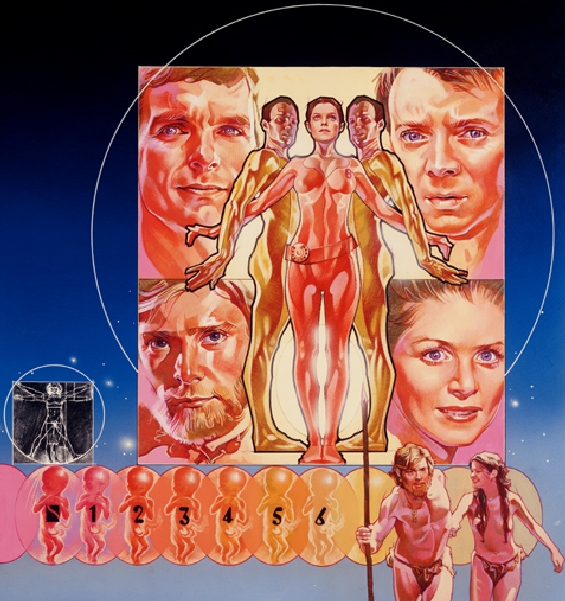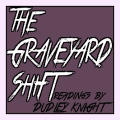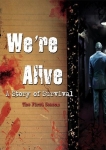
 The SFFaudio Podcast #300 – Jesse, Jenny, and Paul talk about Brave New World by Aldous Huxley
The SFFaudio Podcast #300 – Jesse, Jenny, and Paul talk about Brave New World by Aldous Huxley
Talked about on today’s show:
Jenny Beta+, Paul (caste unknown), f-minus, double plus, A-, Beta-, 1932, double plus good, a different dystopia, Orwell read Brave New World, the Aldous Huxley radio drama (CBS Radio Workshop), negative utopia, Nineteen-Eighty Four is hella-dystopia, Paul has read Brave New World five times, drugs and sex and happiness, conditioning, programming, society engineered, identifying with Bernard, Helmholtz, the Falkland Islands, Huxley’s introduction to the CBS Radio Dramatization, 200 years (not 600) in the future, why so obsessed with Henry Ford?, This Perfect Day by Ira Levin, Christ, Marx, Wood, and Wei, Henry Ford as a political and intellectual force, efficiency, modernization, consumerism, pricing the model-t, absenteeism equals losses, Brave New World‘s society is about production efficiency, the 1998 TV movie, what society really is, no Helmholtz, Henry Foster, Lenina, Peter Gallagher, the 1980 TV movie, 1990s hipsters, the reservation, white trash zone, the outlands of Zardoz with mini-vans, The Children Of Men, Los Angeles, very few deviations in the 1980 TV movie, pushing the Shakespeare connection, whatever happened to Lenina?, a definite weakness, Mustapha Mond gave John Savage the conflict he really wanted, I want to be unhappy, the ultimate political act, the suicide solution, the little boy with the cotton balls in his ears, the hope for reform, the stability of the society, an interesting change, how unstable is the social structure, more soma, more conditioning, A World Out Of Time by Larry Niven, hydrolic empires, John as a catalyst, society returns to normalcy, soma rations forever, freethinkers are sent to outlying islands, an Omni magazine story about dissident clones being killed again and again, Edge Of Tomorrow (2014), cloning novels, this is the cloning novel, “it’s clones all the way down”, the caste-system tells us this is a dystopia, seeing the world from the alpha point of view, betas vs. alphas, are betas autistic?, the 1998 adaptation, intelligent, high-producing, and efficient, mentored and disciples, sex-slaves and baby-makers, good tech, the Malthusian belt, helicopters, WWII, a proto-flying car, their Model-T, the sign of the T, “switching on the synthetic music”, the visual medium, the character names, Bernard Marx probably isn’t named after Groucho Marx, Bernard is pathetic by the end, George Bernard Shaw, Lenin -> Lenina, Darwin Bonaparte, Mustafa Mond <- Mustafa Kemal Ataturk, so much Shakespeare, the audiobook is a weird experience, an infantilized world, I drink to the greater being, the plot, the scent organ, the feelies, the perfume tap fauceting cologne all day, drinking fountains full of Shasta, a constantly refilled mini-bar, the economy in Brave New World, overturning the soma tables, want what you can have, deltas, epsilons, the purple eyes, Amazon Prime for soma tablets, drone delivery, Lenina’s obsession, chastity means neurasthenia, plenty of pleasant vices, “engaging”, oiling the machine, a male fantasy utopia, women never say no, “promiscuity is a citizen’s duty”, no females above beta (in the book), yellow from lupus, social hierarchy, male dominance, John the Savage is sexist too, a product of Huxley’s time, a flash of semi-nudity, why the book gets banned -> children engaging in erotic play, the downfall of TV movie versions, how the world is, books old ideas and marriage are pornographic, “motherfather!”, “fight!”, “hate!”, everyone comes from a bottle, mother as a dirty word, outed as a father, a shameful thing, Miguel Ferrer was re-engineered as a delta, a Machiavellian character turned into a smiling idiot, Linda’s story, the reaction to her appearance, the Death Center, ice-cream when someone dies, such strong pathos, death brings us phosphorus, the 1998 Linda, Tommykins, A Clockwork Orange by Anthony Burgess, the first test-tube baby, birth control, freemartins, a sterilization bonus, Brave New World Revisited (is non-fiction), Walden Two by B.F. Skinner, an expanding horrible utopia, growing up in the soviet union what would we think of Brave New World?, power and control, I love Big Brother, rewind ten years, people are drugging themselves up with drugs TV and the internet, a spy-biography, why don’t they care more about the outlying society, communism, when everyone shares the vision, a step to becoming Mustapha Mond, 1984-ish, assimilation has a cost, the island of all alphas, engineered to be in that place, the temptation of the reader is subversive, are we doing this stuff?, I wanna be more like Helmholtz, Marx gets co-opted by Mond, the shit-disturbers become the leaders in This Perfect Day, you have to see it to believe it, look we’re in the future!, a sick enjoyment, no sense that this world can be destroyed, the benefit of social instability, why Shakespeare is still relevant, we have the analogues for kings and merchant princes, the feelies, a cross-between pornography and reality television, Idiocracy (2006), Three Weeks In A Helicopter, farts, one human need, surrogate pregnancy, violent passion surrogate, The Prisoner‘s secret club within a club, more surreal than it is about something, spies be weird, suddenly in dreamland with giant breasts chasing you down the beach, the world is still for men, we’ve done We and Nineteen Eighty Four…

Posted by Jesse Willis

 Beginning it seems in the mid-1970s
Beginning it seems in the mid-1970s 




